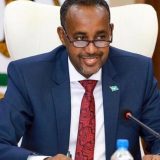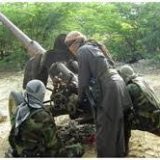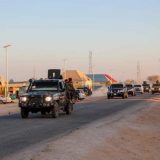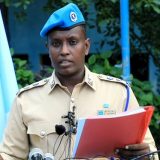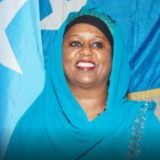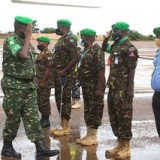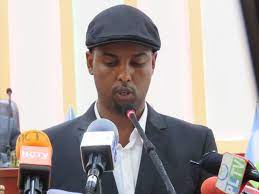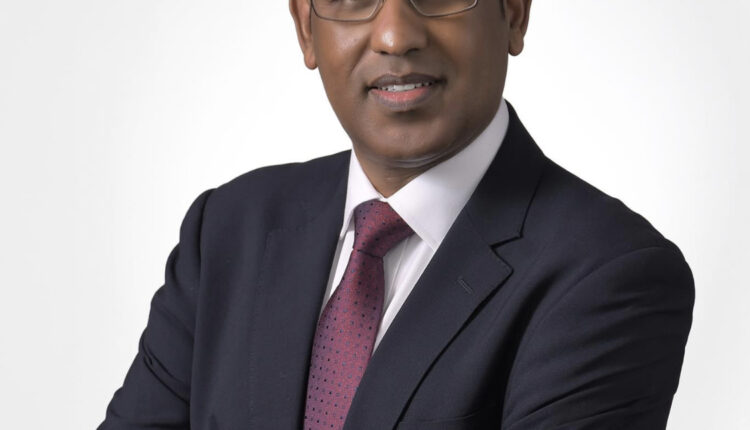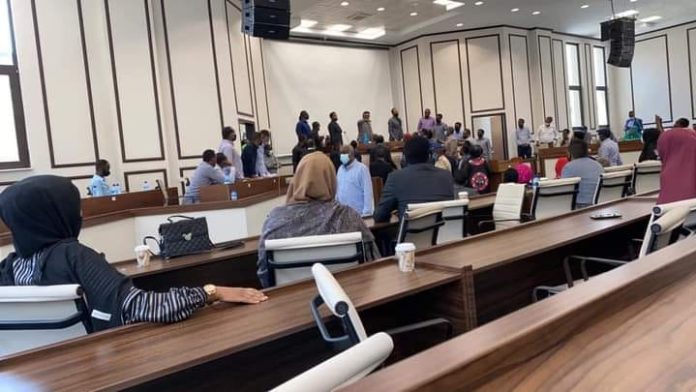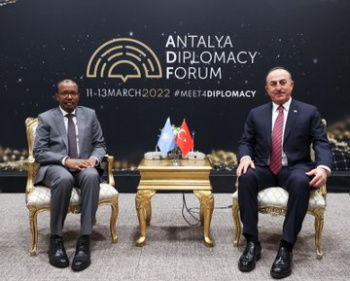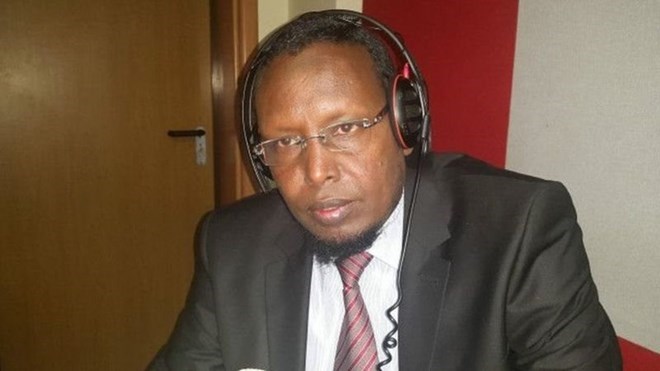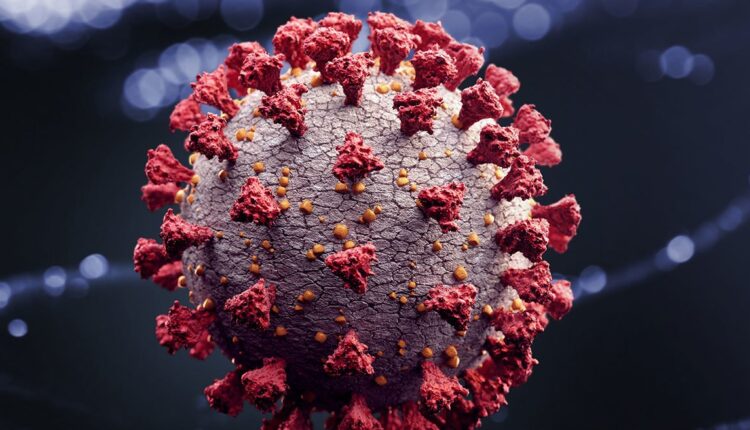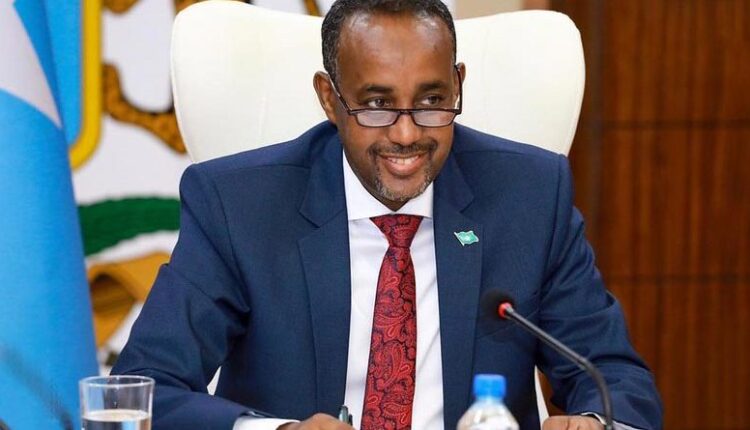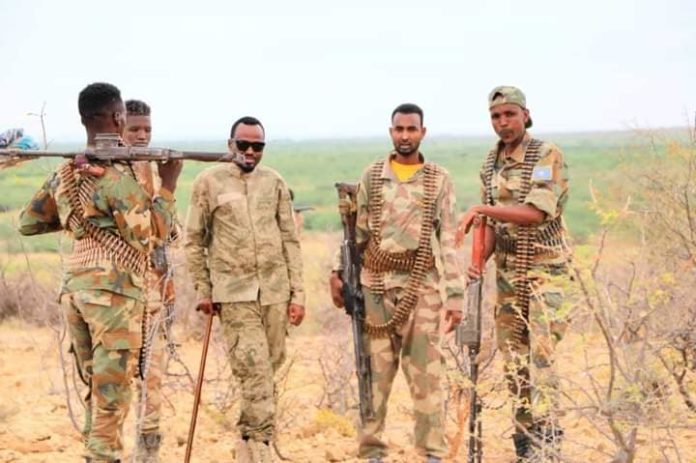Ethiopia’s government and Tigray forces agree to end two-year war
Lead negotiator for Ethiopia’s government, Redwan Hussein (left) and Tigray negotiator Getachew Reda during negotiations in Pretoria.(AP: Themba Hadebe)
Ethiopia’s warring sides have agreed to a permanent end to hostilities in a conflict believed to have killed hundreds of thousands.
Just over a week after formal peace talks mediated by the African Union began in South Africa, delegates from both sides signed an agreement on a “permanent cessation of hostilities”.
The war in Africa’s second-most populous country, which marks two years on Friday, has seen abuses documented on both sides, with millions of people displaced and many near famine.
The war might have officially ended but enormous challenges still lie ahead, including getting all parties to lay down arms or withdraw.
How did we get here?
Tensions had been escalating in 2018, when Ethiopian Prime Minister Abiy Ahmed’s government made a peace deal with Eritrea, the nation that borders the Tigray region.
For the Tigray People’s Liberation Front — or TPLF, a guerilla movement turned political party that ruled Ethiopia for nearly three decades before Mr Abiy took office — Eritrea was a sworn enemy.
In response to that peace deal, the TPLF defied Mr Abiy by holding regional elections in Tigray that he had postponed nationwide.
Mr Abiy’s government then declared the TPLF a terrorist organisation, tipping both sides into war.
The TPLF accused Mr Abiy of centralising power at the expense of the regions and oppressing Tigrayans, which he denies.
Meanwhile, Mr Abiy accused the TPLF of seeking to return to power at the national level, which it rejects.
The war led to human rights violations by all sides, including extra-judicial killings, raping, looting and displacing people by force — all of which have been documented by UN bodies, Ethiopia’s state-appointed human rights commission, independent aid groups and media.
All sides have denied the allegations.
The details of the peace deal
A draft agreement said the Ethiopian government would facilitate lifting the terrorist declaration.
The draft text also said Tigray forces would be disarmed, starting with “light weapons”, within 30 days of Wednesday’s signing.
Ethiopian federal security forces will also take full control of “all federal facilities, installations, and major infrastructure such as airports and highways within the Tigray region”.
The final agreement was not made public, but the brief joint statement notes “a detailed program of disarmament” and “restoration of constitutional order” in Tigray.
Ethiopia’s government will continue restoring basic services to the Tigray region, where communications, transport and banking links for more than 5 million people have been severed since fighting began.
The parties also committed to unfettered humanitarian access.
Kenyan President Uhuru Kenyatta helped facilitate the talks and an African Union panel with representatives from both sides and Africa experts will monitor the process.
It’s not clear when independent journalists and human rights researchers would be allowed into Tigray.
“The level of destruction is immense,” said the lead negotiator for Ethiopia’s government, Redwan Hussein.
Lead Tigray negotiator Getachew Reda expressed a similar sentiment, saying “our people have been killed not only through bullets, but also, for lack of food and medicine”.
Exhausted Ethiopians, urged by the parties to “stop voices of division and hate”, watched them shake hands.
Reactions to the agreement
Olusegun Obasanjo, Head of the African Union mediation team:
“The two parties in the Ethiopian conflict have formally agreed to the cessation of hostilities as well as to systematic, orderly, smooth and coordinated disarmament.
“This moment is not the end of the peace process. Implementation of the peace agreement signed today is critical for its success.”
Abiy Ahmed, Ethiopia’s Prime Minister:
“The agreement signed today in South Africa is monumental in moving Ethiopia forward on the path of the reforms we embarked upon four and a half years ago.
“Our commitment to peace remains steadfast. And our commitment to collaborating for the implementation of the agreement is equally strong.”
Getachew Reda, spokesman for the Tigray authorities:
“Making peace has proved more difficult and more intractable and elusive than presiding over the killing of women and children and destruction of property.
“The war over the last two years has claimed the lives of hundreds of thousands and has turned Ethiopia, once on the cusp of great economic progress, into a bad parody of itself and caused tremendous suffering to the people of Tigray.”
Stephane Dujarric, United Nations spokesman:
“It is very much a welcome first step, which we hope can start to bring some solace to the millions of Ethiopian civilians that have really suffered during this conflict.”
Uhuru Kenyatta, former Kenyan president and facilitator of the talks:
“The lasting solution can only be through political engagement and being able to accommodate our differences, our diversity, while still remaining a united Ethiopia. It’s my hope that all parties will go back and … begin the process of dialogue. The lasting solution can only be dialogue.”
Redwan Hussein, Abiy’s national security adviser and lead negotiator:
“The level of destruction is immense and the darkness massive.
“We thank our brothers from the other side also for this constructive engagement to allow the country to put this tragic period of conflict behind us. It is now for all of us to honour this agreement. We must be true to the letter and to the spirit of this agreement.”
What happens now?
Some major questions remain, including how neighbouring Eritrea will respond.
Eritrea was not part of the talks and it’s not clear to what extent its government, which has long considered Tigray authorities a threat, will respect the agreement.
The draft agreement did say the Ethiopian and Tigray sides would agree to stop “collusion with any external force hostile to either party”.
Eritrean forces have been blamed for some of the conflict’s worst abuses, including gang rapes, and witnesses have described killings and lootings by Eritrean forces even during the peace talks.
Forces from Ethiopia’s neighbouring Amhara region also have been fighting Tigray forces, but Amhara representatives were also not part of the talks.
Another critical question is how soon aid can return to Tigray.
The United Nations says the war has led to a de facto blockade of Tigray that has lasted close to two years, with humanitarian supplies of food and medicines unable to get through most of the time.
Doctors have described running out of basic medicines like vaccines, insulin and therapeutic food while people die of easily preventable diseases and starvation.
UN human rights investigators have said the Ethiopian government was using “starvation of civilians” as a weapon of war.
Ethiopia’s government has consistently denied blocking aid and has said it was distributing food and restoring electricity and other services to areas under its control.
The African Union said in a statement it stood ready to continue accompanying the Ethiopian peace process “towards a more democratic, just and inclusive Ethiopia in which youth, women and men participate fully and in peace”.
“The lasting solution can only be dialogue,” said former Kenyan president Uhuru Kenyatta, a co-mediator in the talks.

